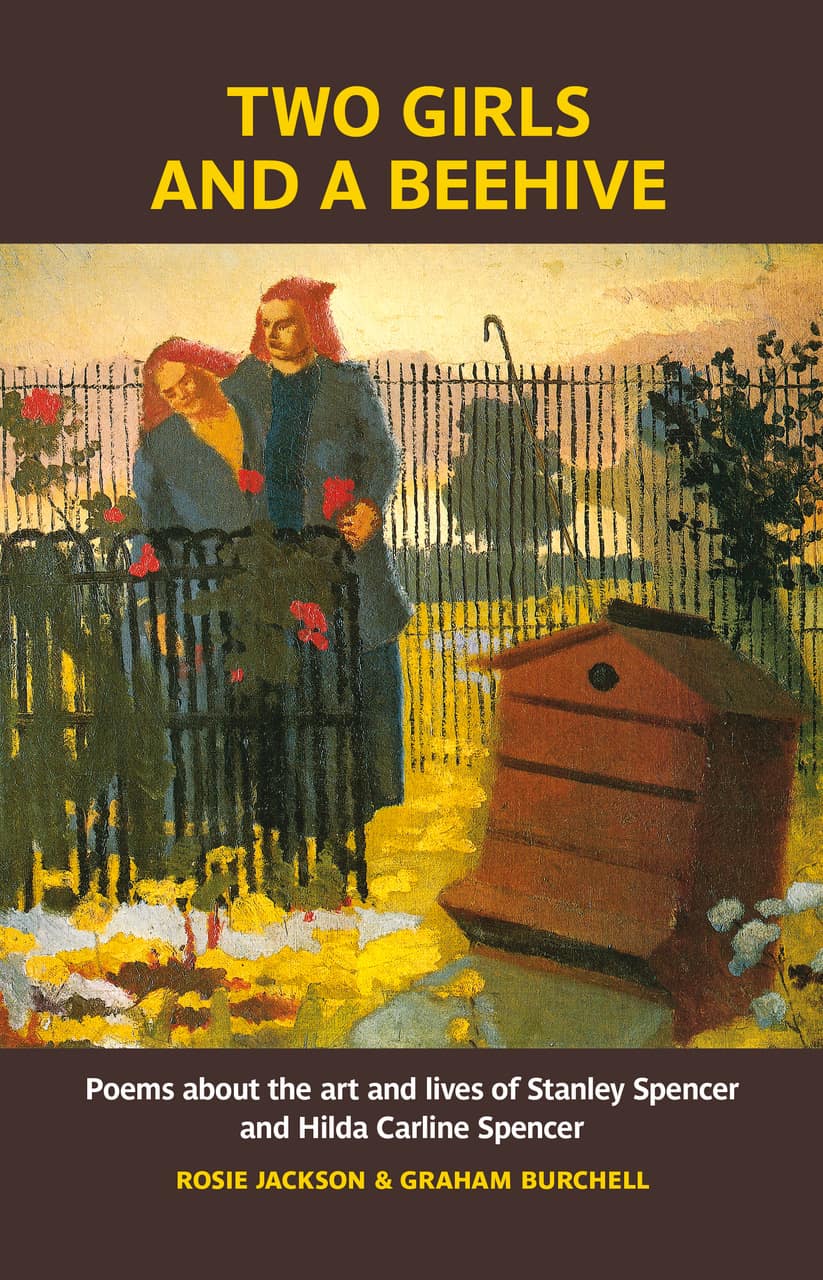I confess to having a personal interest in the art and the life of Stanley Spencer that is entirely fanciful, born of the fact that he and my grandmother, Hilda, both worked in war hospitals in Bristol during the first world war. ‘They could have met,’ I thought, when I first learnt this information. ‘My Hilda could have been his. The visionary Stanley Spencer could have been my grandfather!’
In fact, hers was a different hospital from Stanley’s and she a different Hilda from the imaginative and striking art student Stanley wouldn’t meet until December 1919, and by and large I’m glad, as my grandmother enjoyed a happy marriage with her tram-driver husband, Jack, whereas poor, put-upon Hilda Carline lost her art, her family and her sanity as a result of her union with one of the greatest British artists of the 20th century, and his enduring sexual obsession with the manipulative and malevolent Patricia Preece.
Whilst encompassing Stanley’s formative years and his experiences in the Great War, and the unconventional religious faith that drove him repeatedly to recreate scenes from the Bible with Cookham as a backdrop, the majority of poems in Graham Burchell and Rosie Jackson’s collaborative collection focus on Spencer’s and Carline’s entangled lives – a personal history that’s been called ‘most bizarre domestic soap opera in the history of British art’. They mostly use Stanley’s paintings as their frame of reference, but also one or two of Hilda’s. The reader, aware of a future still unknown to those who must live it, can’t help but shiver when reading the poem ‘Lady in Green’, after Carline’s ‘Portrait of Patricia Preece’, in which the trusting Hilda ‘paints people as if light/were spread equally inside them’ yet ‘knows how yellow turns to green/in the shadow’.
This feeling of foreboding is fully realised a few poems and four years later in ‘Fantasy of Hiding in the Greenhouse’. Hilda has embarked upon the process of securing a divorce from the man she is doomed always to love, and appears to have lost her sense of self entirely:
‘She wasn’t sure what she was doing here,
wearing the skin of someone from the past,
like a ghost staring into the familiarity
of a garden lost forever, the life
that wandered in it lost forever.’
Poets are frequently exhorted, in the words of Emily Dickinson, to ‘tell all the truth but tell it slant’, and this is a particularly effective way of approaching paintings which themselves often exaggerate detail or focus on the familiar from strange angles. Thus Patricia’s hands in the poem ‘Patricia Preece’ are ’rakers/shovers, gold-digging forepaws’, a verbal echo of the hands at the forefront of Stanley’s ‘Patricia at Cockmarsh Hill’, with their disproportionately long, grasping fingers that seem to reach out of the painting itself, while the following stanza gives us the startling image of ‘ … her à la mode/choker necklace, like a zip pull/that she feels for to change her head/for another more appropriate to the season’. In a more light-hearted vein, the poem ‘Bloodrush’ is written from the point of view of someone somersaulting over railings in a line of people doing the same: ‘You too know what it is to be fat/and fluid as an atom. You glimpse hems/of skirts, an artist, someone’s potatoes’. This is ekphrasis at its best, in which art and poetry engage in dialogue with each other, each adding to the understanding of the other.
It’s no reflection on the poems, all of which stand independently of their associated paintings, to say that a reading of Two Girls and a Beehive is enhanced by looking at the art that inspired them. If you’re not lucky enough to have access to a copy of Phaidon’s Stanley Spencer, they’re all searchable on line, and there’s a timeline at the back of the book for those who aren’t familiar with the detail of Stanley and Hilda’s lives.
Deborah Harvey’s poems have been widely published in journals and anthologies, broadcast on Radio 4’s Poetry Please, and awarded several prizes. Her four poetry collections are published by Indigo Dreams, the most recent being The Shadow Factory (2019). She is co-director of The Leaping Word poetry consultancy.
Two Girls and a Beehive by Rosie Jackson and Graham Burchell is published by Two Rivers Press and available here: tworiverspress.com/shop/

